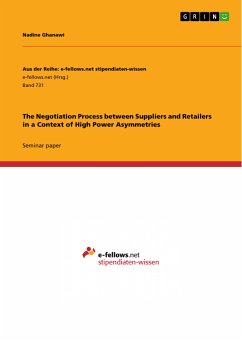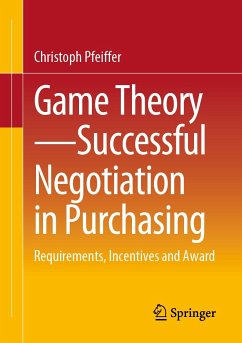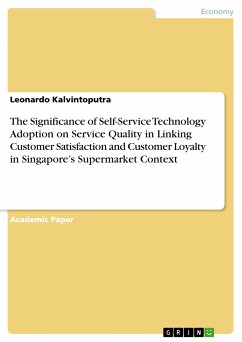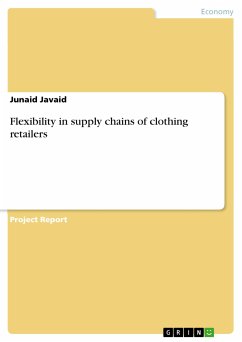
The Negotiation Process between Suppliers and Retailers in a Context of High Power Asymmetries (eBook, PDF)

PAYBACK Punkte
0 °P sammeln!
Seminar paper from the year 2013 in the subject Business economics - Business Management, Corporate Governance, grade: 1,5, Novancia Business School Paris, language: English, abstract: A negotiation is generally defined as a process that takes place in "situations in which two or more parties recognize that differences of interest and value exist among them" (Howard 1982, p. 7) and in which they want to seek "optimal, balanced, mutually acceptable and durable solutions of [their] conflicts, problems and projects (Dupont 1996, p. 39). In the business context, negotiations between producers and ...
Seminar paper from the year 2013 in the subject Business economics - Business Management, Corporate Governance, grade: 1,5, Novancia Business School Paris, language: English, abstract: A negotiation is generally defined as a process that takes place in "situations in which two or more parties recognize that differences of interest and value exist among them" (Howard 1982, p. 7) and in which they want to seek "optimal, balanced, mutually acceptable and durable solutions of [their] conflicts, problems and projects (Dupont 1996, p. 39). In the business context, negotiations between producers and retailers in particular have been given a great deal of attention in academic literature since the late twentieth century (Lindqvist 1983, Davies 1990, Bolen 2003, Whelan 2009). In fact, those negotiations are vital for establishing the terms of trade, or whether there will be any trading at all (Bolen, 2003). However, supplier-retailer relationships are usually everything than balanced when it comes to bargaining strength: Developments in the structure of consumer and grocery products supply chains--i.e. the shrinkage of traditional distribution channels and the emergence of hypermarkets as well as specialized retail chains-- have made retailers become sort of "gatekeepers" to the final customers (Hirschman & Stampfl 1980). Since producers wanting to sell their products to the market have to sell them to retailers first, the latter are clearly in a more powerful position not being as dependent on their counterpart as it is typically the case vice versa. Likewise, the role of power in negotiations has been discussed by a number of established authors (see, for instance, Barbarach & Lawler 1980, Zartman & Rubin 1994). Most notably in interactions with large retail chains, the imminent question for small producers is: What happens when you encounter a company such as Wal- Mart, occasionally described as "the ultimate non-negotiable partner" (Hanna 2008)?
Dieser Download kann aus rechtlichen Gründen nur mit Rechnungsadresse in A, B, BG, CY, CZ, D, DK, EW, E, FIN, F, GR, HR, H, IRL, I, LT, L, LR, M, NL, PL, P, R, S, SLO, SK ausgeliefert werden.













